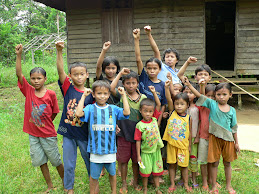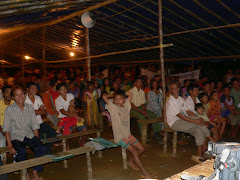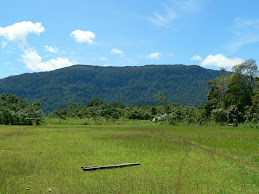Madurese leave shacks, start life anew
The
Erma S.Ranik, Contributor,
Clothes are piled up in Noriah's shack in a refugee camp at Pontianak Haj Dormitory. She is getting ready to leave the place.
For three years, Noriah, 58, her husband and their six children have lived in the four meter by six meter shack. They fled to safety when in March 1999 ethnic rioting broke out in their home village in Sabaran Sungai, Sambas regency.
Now, along with dozens of other displaced Madurese families, her family are being moved to their new home in Kota Baru,
""I'm happy we can leave the camp now,"" she said, her face beaming with happiness when packing up and getting ready to leave.
The refugees are vacating the camp on the instructions of the local administration, not of their own will. The regional administration decided that they could no longer stay in the haj dormitory because the June deadline for them to leave voluntarily had passed.
The data compiled by the Foundation for Victims of Sambas Rioting (YKKSS) shows that 68,394 people or 12,499 families from Sambas have become refugees.
They are staying in three places: Bengkayang regency,
They were displaced in the wake of the 1999 ethnic clashes between the ethnic Madurese migrants and indigenous Malay people. Thousands of people were killed in the fighting.
Yakob Mohsin, a local government official who leads a team tasked with the Madurese relocation, said the displaced people were moved after long, careful preparations.
Reconciliation among the conflicting parties, he said, is still a daunting effort because the Malays in Sambas still fiercely reject the presence of Madurese in their area. That's why the Madurese are being relocated elsewhere.
""We offer them cash as part of their economic empowerment so that they will abandon the camps. Each family asked for Rp 20 million but we could only give them Rp 5 million,"" Yakob said.
After several rounds of negotiations, most refugees agreed to accept the funds although some families have stuck to their demand for Rp 12.5 million, and refuse to move.
Ibu Mulyana, a refugee from Marga Mulya village, Samalantan district, Bengkayang regency, said she decided to accept the money because there was no other choice.
""We found ourselves in a dilemma. If we don't accept the money, we will have nothing but if we do, the money is not enough to start a new life,"" she said.
She hoped that the local government would continue to pay attention to the refugees, especially to their welfare. She said that in the last seven months, the refugees were not given their rations. Previously a refugee would get a ration of 400 grams of rice a day plus Rp 1,500 for other food.
The provincial government is preparing more relocation sites to accommodate the tens of thousands of refugees still waiting in other camps across the province.
""As of late February this year, 4,438 families had been relocated,"" he added.
Eager to see the refugees leave, the local administration has simplified the bureaucratic procedures. Basically they can leave a few days after they register themselves with the neighborhood chief.
The vacation of the camps has proceeded peacefully. The police had deployed 3,000 personnel to oversee the transfer, according to spokesman for the West Kalimantan Police command, Comr. Suhadi SW.
In fact the refugees even demolished their own shacks.
But the relocation would not mean the end of the Madurese's misery.
Ibu Mulyana was right in saying that the money was insufficient to start life anew. Furthermore, the relocation may spark new conflict with the indigenous people in the new area.
A Madurese settler, Mathori, said, ""Locals refuse to sell us their (farm) land on various grounds. Some of them said they did not want to have so many people coming to their regions.""
The strongest rejection occurred in Pal Enam. In mid June, locals set fire to a number of shacks newly built by the relocated refugees. The situation was brought under control after security officers arrived at the scene.
These refugees are beginning to start their lives anew. Some still cherish the dream of going back to their home in Sambas.
""I'm from Sambas. I will return some day to the land where I belong,"" said Komariah, who was born and grew up in Sambas. -- The writer is an editor of Kalimantan Review.





Tidak ada komentar:
Posting Komentar